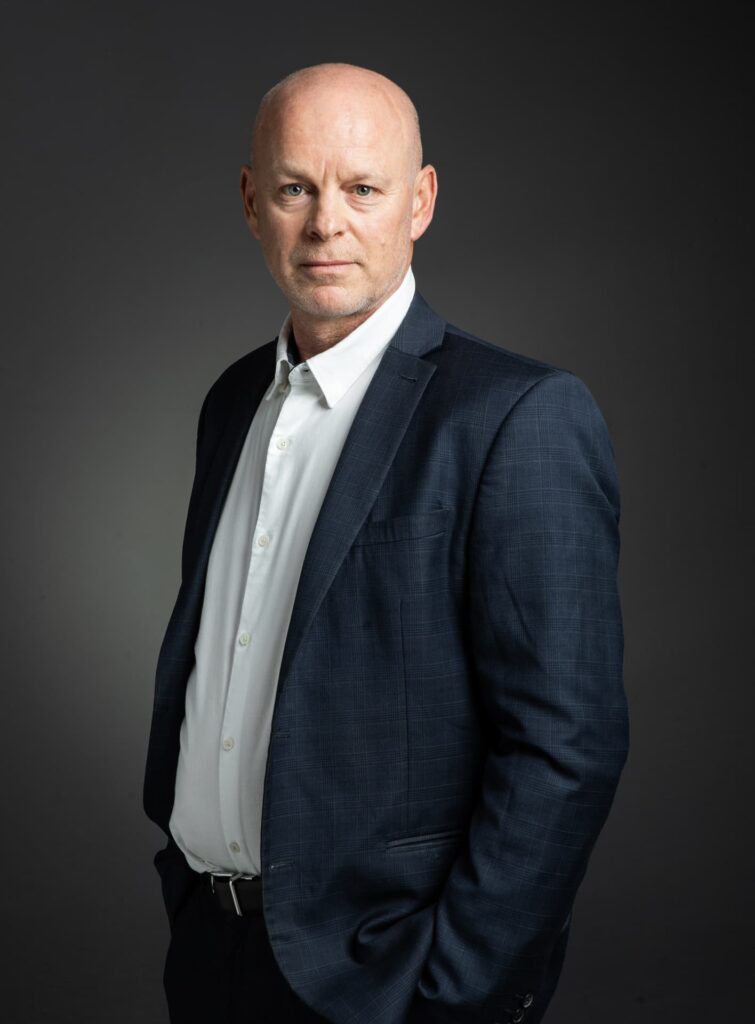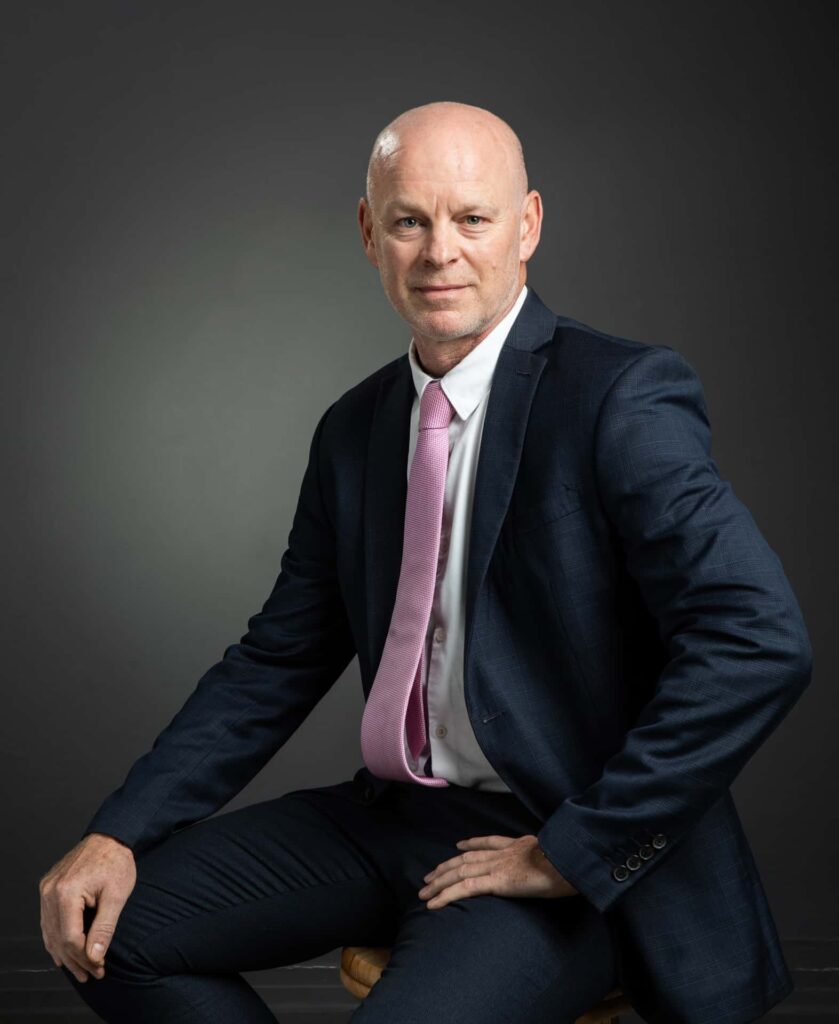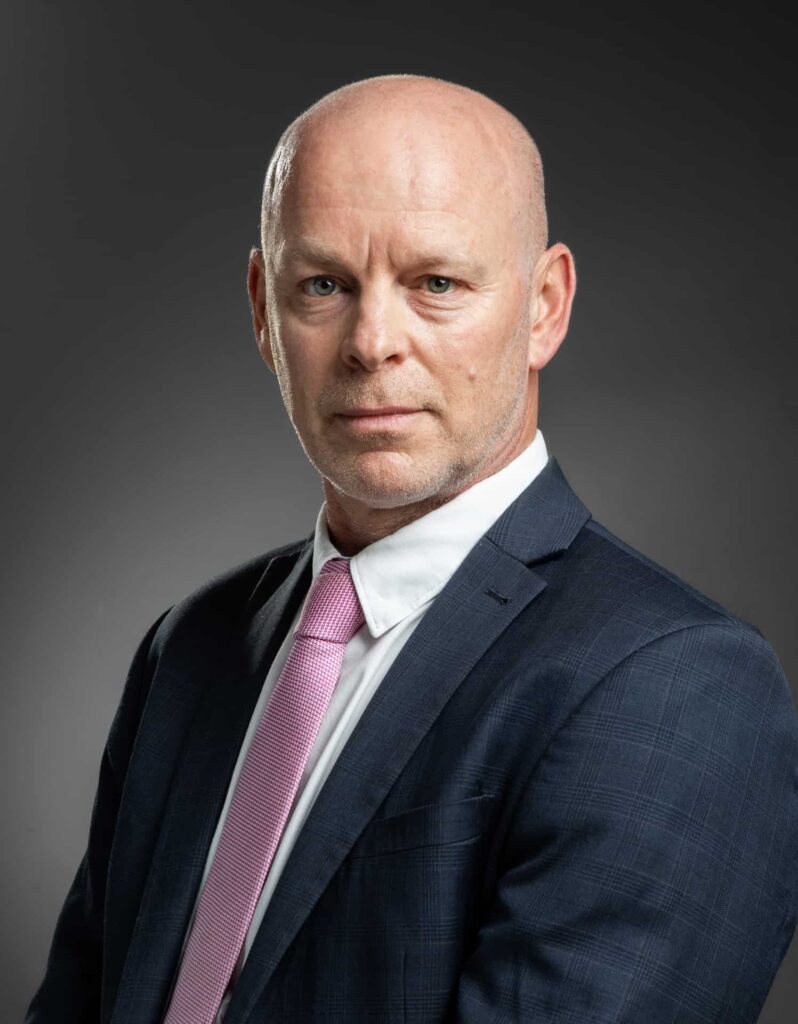
John Fryer, an experienced leader in the construction industry, currently serves as the managing director. His career journey began humbly as a trainee plasterer in Cornwall, where he learned the essentials of the trade. Today, he leads significant construction projects across the globe, driven by a passion for shaping landscapes and creating sustainable infrastructure. With a career spanning decades, John’s expertise and leadership have allowed him to leave a lasting impact on the industry. John’s journey into construction began under the mentorship of a professional tradesman named Bob Page.
John Fryer | Managing Director | Deep Group London Ltd
“Bob,” John recalls fondly, “is still a friend of mine today.” Over six or seven years, John honed his plastering skills, learning the importance of preparation and process. The lessons he learned early in his career, including the value of attention to detail and organization, remain foundational to his approach to construction. At EliteX, we are proud to have John Fryer as part of the edition: Visionary Leaders in Construction, 2024.
During the recession in the UK, John decided to expand his horizons and moved to Germany. There, he not only improved his craft but also embraced new ways of working. His experiences across Europe eventually led him into project management roles. Fluent in German, John’s adaptability and openness to learning helped him climb the ranks in construction, culminating in his current leadership role. Accreditations, compliance and competence are vitally important as is a strong moral compass, costs are importantly but health, safety and environment’s must take precedence. Reflecting on the evolution of the construction industry, John highlights significant shifts in health, safety, and environmental considerations. “We’ve become more conscious about the broader impact of construction,” he explains. Today, the industry must balance the needs of development with ecological concerns. John notes that construction decisions affect not only local environments but also have global consequences, such as deforestation in Brazil or ocean pollution caused by international shipping.
“It’s not just about the land,” John adds, “but about how these decisions impact ecosystems worldwide.”

John believes the industry has made strides, but more needs to be done to minimize its environmental footprint. Innovations in materials and construction techniques are essential to creating sustainable buildings that have a lower impact on the environment. For John, construction is more than a career—it’s a lifelong passion. He fondly recalls his childhood fascination with building Lego structures, which evolved into a love for creating real-world infrastructure. “It’s a privilege to lead projects that transform empty plots of land into vibrant spaces,” he says. What excites him most is seeing the physical manifestation of ideas and plans come to life. John’s ability to view construction as both an art and a science sets him apart. Every project is an opportunity to change landscapes, improve communities, and leave a lasting legacy. This passion keeps him motivated and committed to his work.
While John’s career has been filled with rewarding experiences, it hasn’t been without challenges. One of the biggest concerns he identifies is the need to balance progress with environmental responsibility. “We still need to do more for wildlife and ecological preservation,” he emphasizes. John points to issues like noise pollution, flooding, and the overuse of concrete as areas where the industry must improve. He also advocates for using innovative technologies, such as liquid membranes and blue roofs, to reduce environmental harm. “We need to create buildings with longer lifespans and minimal environmental impact,” he explains. Another critical area John highlights is the need to manage underground watercourses more carefully to avoid disruptions during piling and construction activities.
John believes the construction industry must welcome leaders from diverse backgrounds to promote innovation and growth. “Leaders with transferable skills in project management, quality management, and health and safety can bring new perspectives,” he explains. Encouraging people from outside the industry to enter construction could lead to fresh ideas and more effective solutions. Throughout his career, John has been fortunate to have strong mentors. Bob Page, the man who introduced him to construction, remains an influential figure in his life. John also draws inspiration from other sources, such as the excellence of Ferrari and Michael Schumacher’s passion for continuous improvement. Closer to home, his son’s resilience after a life-changing accident inspires John to face challenges with a positive outlook.
John Fryer believes that to be a leader in the construction industry, “you must be a good builder, whether that comes from a trade background or management experience on-site.” He emphasizes that “the foundation of any growth in the profession comes from knowledge and experience of the entire construction lifecycle, with a commitment to continuous improvement and innovation.” John also highlights the importance of surrounding yourself with people who set good examples, ensuring that the organization’s goals and the workforce’s ambitions are aligned. As a leader, he stands by his values and creates a strong culture within his teams. John explains that “leaders must lead by example, working in a safe environment while empowering every member with a voice to support the business’s functions.” He believes that successful project management requires decisive decision-making, as construction projects have limited lifespans. “Reducing procrastination and making timely decisions are essential for the construction industry to move forward efficiently,” he adds. Fostering a culture where whistleblowing is a safe and creating a safe psychological work place, doing the right thing must be respected, where quality and safety come first to the benefit of all parties, prioritising residents rather than meeting regulations.

“We must open roles to leaders from a variety of backgrounds with transferable skills—embracing outside leadership can only help the industry as a whole.”
Creating an appealing working environment is crucial for younger generations. To help them thrive in a physical industry like construction. John encourages young leaders to embrace sustainability and understand the environmental impact of construction. “Trust your team and respect the people you work with,” he advises. He emphasizes the importance of taking breaks to avoid burnout, encouraging future leaders to switch off their phones from time to time. John also believes the construction industry must invest more in apprenticeship programs to nurture the next generation of builders. He urges young professionals to focus on creating social value while incorporating ecological practices into their work. “We need to rethink how we build and learn to recycle and regenerate,” he says. The future, according to John, lies in embracing renewable energy sources like wind farms and solar power while adopting sustainable practices such as blue roofs and water attenuation systems.
John is passionate about mentoring young professionals and giving back to the industry that has shaped his life. He is actively involved in mentoring programs within his organization and plans to apply for fellowship with the MCIOB (Chartered Institute of Building). “It’s my way of contributing to the growth of the industry,” he explains. John is a strong advocate for diversity and inclusion in the construction industry. “Our workforce must reflect the diverse communities we serve,” he says. He believes that by fostering an inclusive environment, the industry can attract the best talent and better serve its clients and stakeholders. John stays ahead of industry trends by continuously educating himself. During the COVID-19 lockdowns, he became a chartered environmentalist and completed expert witness courses. “Self-awareness and continuous learning are essential for any leader,” he says. He encourages other leaders to stay curious and adaptable, ready to meet the changing demands of the industry.
Looking ahead, John envisions a construction industry that prioritizes sustainability, innovation, and collaboration. He believes that leaders must adapt to both economic challenges and environmental responsibilities. “We need to focus on redeveloping and retaining structures, rather than demolishing and replacing them,” he says. John also hopes to see reforms in the way projects are funded and managed. “Payment delays harm the entire supply chain,” he explains. He advocates for faster payment processes to ensure that businesses can meet project demands and workers receive fair compensation. John’s ultimate goal is to be remembered as a leader who built high-performing teams that delivered award-winning projects. He hopes to inspire future generations to embrace sustainable practices and lead with integrity.
We have to create a better future. “The work we do today will shape the world for generations to come.”

Through his passion, expertise, and commitment to sustainability, John Fryer continues to make a significant impact in the construction industry. His leadership serves as a model for others, showing that with the right mindset and values, it’s possible to create lasting change.